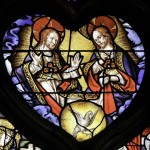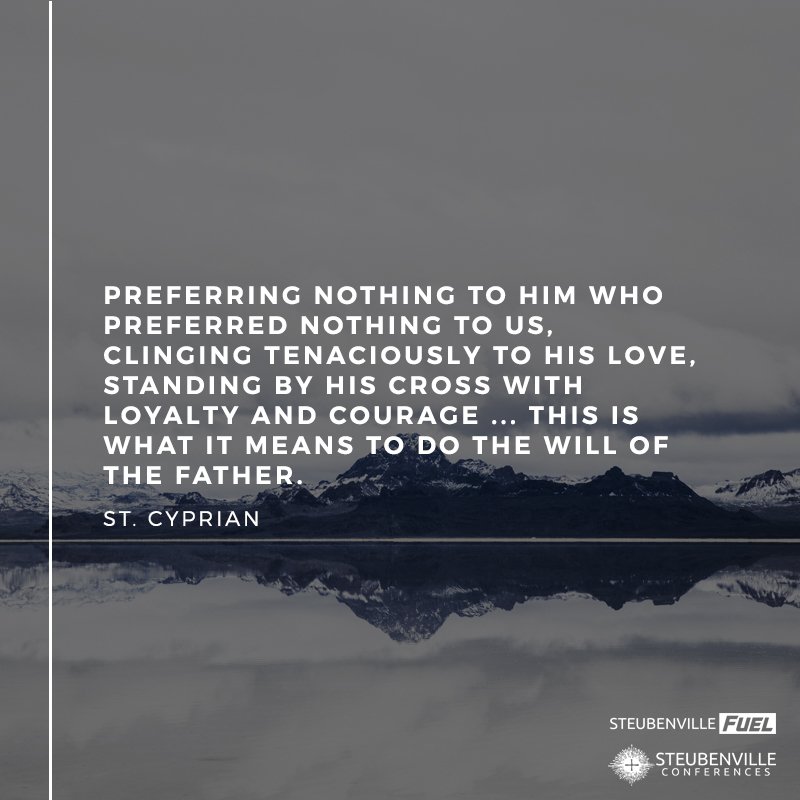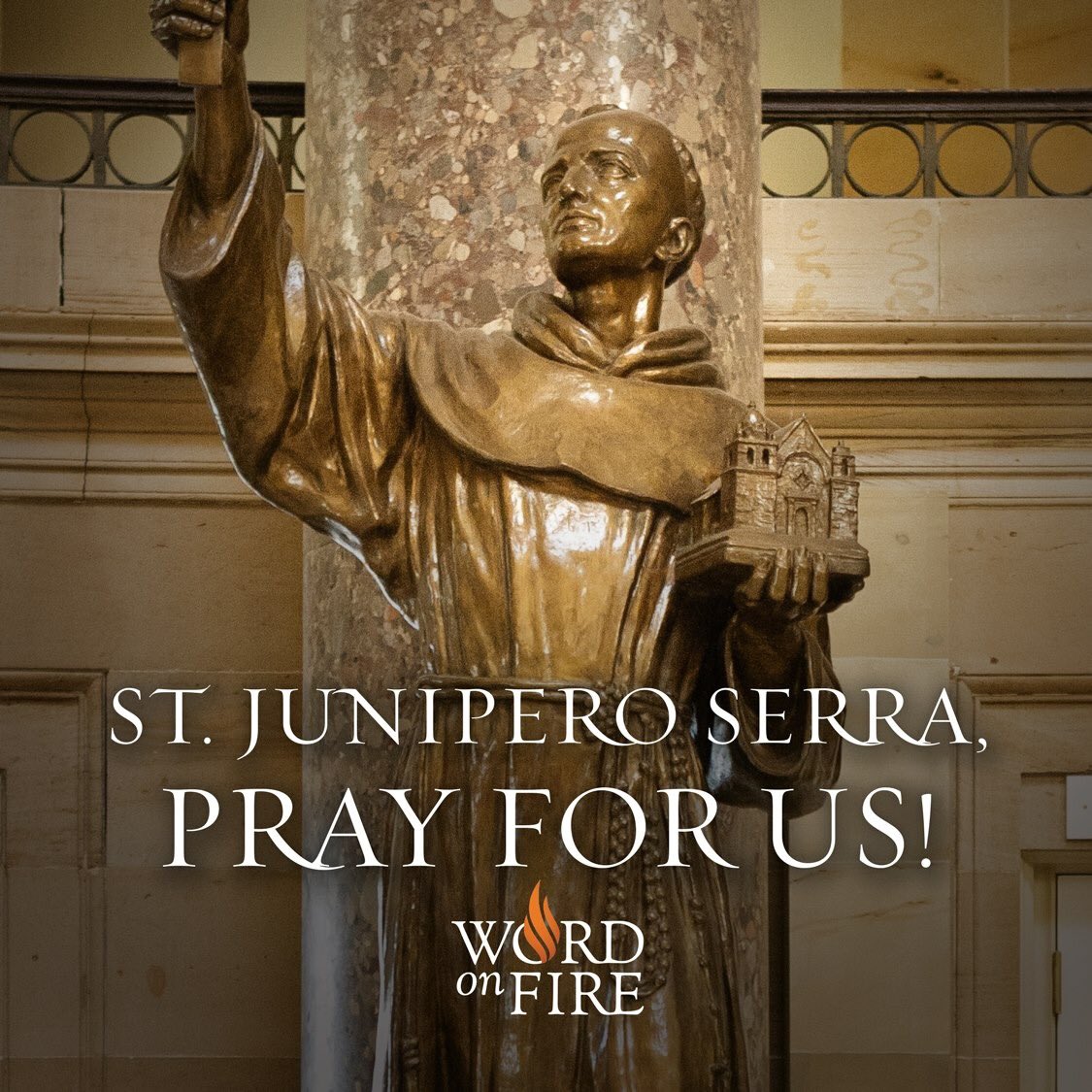She was executed today in 1431:
Here are generous excerpts from Pope Benedict XVI’s Wednesday audience about her in 2011. It’s worth reading and sharing.
1. She “fearlessly bore the great light of the Gospel in the complex events of history.”
2. “From childhood, she showed great love and compassion for the poorest, the sick and all the suffering, in the dramatic context of the war.”
3. “Through the ‘voice’ of St Michael the Archangel, Joan felt called by the Lord to intensify her Christian life and also to commit herself in the first person to the liberation of her people.”
4.
Her immediate response, her “yes,” was her vow of virginity, with a new commitment to sacramental life and to prayer: daily participation in Mass, frequent Confession and Communion and long periods of silent prayer before the Crucified One or the image of Our Lady.
5. “The young French peasant girl’s compassion and dedication in the face of her people’s suffering were intensified by her mystical relationship with God.”
6. “The years of her hidden life and her interior development were followed by the brief but intense two years of her public life: a year of action and a year of passion.”
7. “The many witnesses show us this young woman who was only 17 years old as a very strong and determined person, able to convince people who felt insecure and discouraged.”
8.
Overcoming all obstacles, she met the Dauphin of France, the future King Charles VII, who subjected her to an examination in Poitiers by some theologians of the university. Their opinion was positive: they saw in her nothing evil, only a good Christian.
9.
For a whole year, Joan lived with the soldiers, carrying out among them a true mission of evangelization. Many of them testified to her goodness, her courage and her extraordinary purity. She was called by all and by herself “La pucelle” (“the Maid”), that is, virgin.
10.
Her Trial is a distressing page in the history of holiness and also an illuminating page on the mystery of the Church which, according to the words of the Second Vatican Council, is “at once holy and always in need of purification” (Lumen Gentium, n. 8).
11.
The Trial was the dramatic encounter between this Saint and her judges, who were clerics. Joan was accused and convicted by them, even condemned as a heretic and sent to the terrible death of being burned at the stake. Unlike the holy theologians who had illuminated the University of Paris, such as St Bonaventure, St Thomas Aquinas and Bl. Duns Scotus, of whom I have spoken in several Catecheses, these judges were theologians who lacked charity and the humility to see God’s action in this young woman.
12. Joan’s judges were radically incapable of understanding her or of perceiving the beauty of her soul. They did not know that they were condemning a Saint.
13.
Joan’s appeal to the Pope, on 24 May, was rejected by the tribunal. On the morning of 30 May, in prison, she received Holy Communion for the last time and was immediately led to her torture in the Old Market Square. She asked one of the priests to hold up a processional Cross in front of the stake. Thus she died, her gaze fixed upon the Crucified Jesus and crying out several times the Name of Jesus.
14. “The Name of Jesus, invoked by our Saint until the very last moments of her earthly life was like the continuous breathing of her soul, like the beating of her heart, the center of her whole life.”
15. “She had a total love for Jesus and for her neighbor in Jesus and for Jesus.”
16. “She understood that Love embraces the whole of the reality of God and of the human being, of Heaven and of earth, of the Church and of the world.”
17. “Jesus always had pride of place in her life, in accordance to her beautiful affirmation: ‘We must serve God first.’ Loving him means always doing his will.”
18. “She declared with total surrender and trust: ‘I entrust myself to God my Creator, I love him with my whole my heart.'”
19. “Asked if she knew that she was in God’s grace, she replied: ‘If I am not, may it please God to put me in it; if I am, may it please God to keep me there’.”
20. “Our Saint lived prayer in the form of a continuous dialogue with the Lord who also illuminated her dialogue with the judges and gave her peace and security.”
21. “She asked him with trust: ‘Sweetest God, in honor of your holy Passion, I ask you, if you love me, to show me how I must answer these men of the Church’.”
22. “Joan saw Jesus as the ‘King of Heaven and of the earth’. She therefore had painted on her standard the image of ‘Our Lord holding the world.'”
23. “Her holiness is a beautiful example for lay people engaged in politics, especially in the most difficult situations. Faith is the light that guides every decision.”
24.
In Jesus Joan contemplated the whole reality of the Church, the “Church triumphant” of Heaven, as well as the “Church militant” on earth. According to her words, “About Jesus Christ and the Church, I simply know they’re just one thing” (ibid., p. 166). This affirmation, cited in the Catechism of the Catholic Church (n. 795), has a truly heroic character in the context of the Trial of Condemnation, before her judges, men of the Church who were persecuting and condemning her. In the Love of Jesus Joan found the strength to love the Church to the very end, even at the moment she was sentenced.
25.
With her luminous witness St Joan of Arc invites us to a high standard of Christian living: to make prayer the guiding motive of our days; to have full trust in doing God’s will, whatever it may be; to live charity without favoritism, without limits and drawing, like her, from the Love of Jesus a profound love for the Church.
Mosaic from Westminster Cathedral of St Joan of Arc, born 600 years ago in 1412 and executed today in 1431. http://t.co/nzlBQ67P
— Fr Lawrence Lew OP (@LawrenceOP) May 30, 2012












